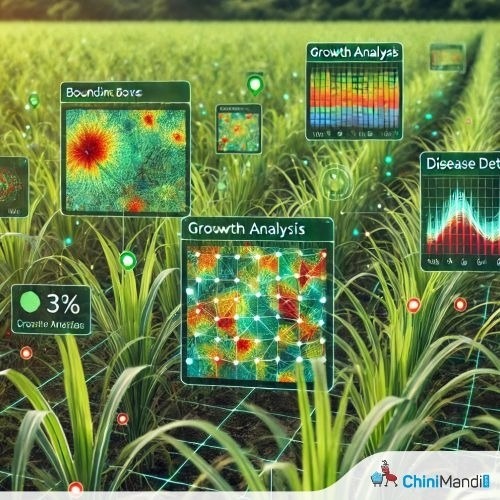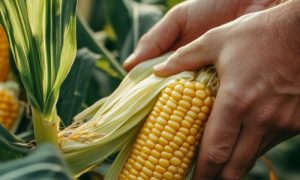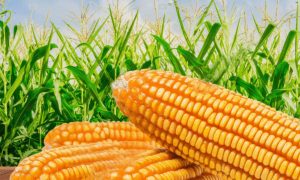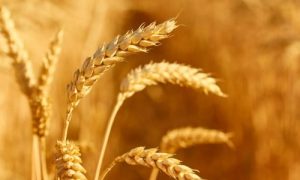National Conference on Agri Stack highlights digital push in agriculture sector; Rs 2,000 crore allocated for Digital Crop Survey

The Ministry of Agriculture & Farmers’ Welfare hosted a national conference on Agri Stack in New Delhi, advancing digital agriculture through data integration. MoUs were signed with four states and the PSB Alliance, while ₹6,000 crore in Special Central Assistance was announced. Key features included farmer registries, DVCs, AI tools, and unified grievance portals to enhance service delivery and inclusivity.
The Ministry of Agriculture & Farmers’ Welfare (MoA&FW) organized the National Conference on Agri Stack: Turning Data into Delivery at Sushma Swaraj Bhawan, New Delhi. The conference served as a strategic platform for senior officials from the Centre and States key stakeholders to deliberate on the progress, challenges, and future roadmap for the implementation of Agri Stack under the Digital Agriculture Mission (DAM).
A major milestone of the day was the signing of Memorandum of Understanding (MoUs) with the States of Maharashtra, Kerala, Bihar, and Odisha, and the PSB Alliance with the National Farmers’ Welfare Program Implementation Society (NFWPIS), MoA&FW. This collaboration will enable seamless digital access to credit services through Farmer Registry-linked authentication, reducing paperwork and benefiting small and marginal farmers across India. Additionally, the Special Central Assistance (SCA) Guidelines were jointly launched by Secretaries of Agriculture and Land Resources, Chief knowledge Officer and Advisor (CKO&A), Add. Secretary (MoA&FW) in the presence of other dignitaries. A total allocation of Rs 6,000 crore was announced to support States, Rs 4,000 crore earmarked for Farmer Registry (including legal heir systems), and Rs 2,000 crore for Digital Crop Survey, on a first-come-first-served basis.
The conference began with a welcome address by Devesh Chaturvedi, Secretary (Agriculture), who reiterated the government’s commitment to leveraging technology for transparent, farmer-centric governance. He highlighted the urgent need for States to dynamically link their Farmer Registries with updated Records of Rights (RoR) and actively utilize the digital datasets for scheme delivery and personalized agricultural services. In his keynote, the Secretary, Department of Land Resources (DoLR), emphasized the foundational role of digital land records and Aadhaar seeding for accurate farmer identification, noting the challenges of declining land value and income in rural areas.
Pramod Kumar Meherda, Additional Secretary (Digital), MoA&FW, provided a comprehensive overview of Agri Stack , including integration of the Farmer ID with flagship schemes such as PM-KISAN, PMFBY, KCC etc. He stressed the importance of georeferencing, data quality assurance, and compliance with Unified Farmer Service Interface (UFSI) standards. The conference also witnessed the introduction of upcoming services such as farmer authorization systems and Digitally Verifiable Certificates (DVCs), empowering farmers to share land and crop information securely and selectively.
Technical sessions led by the Chief Knowledge Officer and Advisor (CKO&A) focused on scaling State-level digital infrastructure, addressing gaps in data quality, and enforcing compliance with DCS standards. Challenges such as outdated tribal land records, errors in crop survey photos, and non-compliance with DCS standards were discussed. Emphasis was laid on using remote sensing, AI/ML tools, and automated data validation mechanisms to improve accuracy and efficiency.
A dedicated session titled Insights from States on Agri Stack Usage featured presentations from Maharashtra, Uttar Pradesh, and Karnataka. Maharashtra showcased enrolment of farmers in the Farmers Registry across the state and its progress in meeting SCA milestones. The State sought central support for establishing a Data Provisioning Engine (DPE), enabling Farmer ID based enrolment in the MahaDBT, and creation of an innovative sandbox for AI-driven advisories (Mahavistaar AI). Uttar Pradesh highlighted its use case of integrating Agri Stack with MSP e-procurement for 2024 and shared field challenges in DCS implementation. Karnataka presented multi-layered innovations, including integration of the FRUITS with banking systems, use of Agri Stack in disaster relief, and linking soil health cards for customized advisory services.
CKO introduced the Digitally Verifiable Credential (DVC), also referred to as the Kisan Pehchan Patra, which allows farmers to generate authenticated credentials for specific land parcels and crops. These DVCs are integrated with DigiLocker and dynamically revoked upon land mutation. The session also launched a unified grievance redressal portal with OTP-based login, multilingual support, and audio upload features for land-related disputes. Farmers can authorize representatives to access services or lodge grievances on their behalf.
The Ministry also showcased an AI-powered chatbot, trained on Agri Stack data and built using Google Gemini, capable of answering queries in multiple languages. Additional AI tools are being piloted for assisting supervisors in crop identification, performing facial authentication of surveyors, and optimizing backend code in partnership with system integrators.
The conference concluded with an open dialogue moderated by the Additional Secretary (Digital), inviting feedback from States and facilitating peer learning. Anindya Banerjee, Deputy Advisor, delivered the Vote of Thanks, commending the collaborative spirit and reaffirming the Centre’s commitment to supporting States in realizing the vision of inclusive, data-driven agricultural development.
To Read more about Agri News continue reading Agriinsite.com
Source : Chinimandi

















